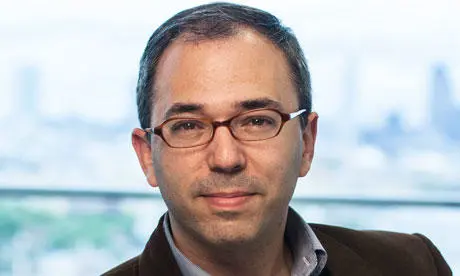Monday 4th August - 06:00 PM BST
The Price of Being No One
Anonymity: The Right to be Unknown
Anonymity was once seen as a key feature of the internet and essential for protecting free expression and privacy. It would allow us to speak truth to power, explore ideas without fear, and avoid surveillance. No wonder the protection of anonymity was enshrined in international human rights law. But many argue today, this ideal is fractured and has supercharged hate, aggression, and polarisation. Studies show that anonymity often fosters increased aggression, diminishes self-awareness, and contributes to political extremism. And many argue that our attitude towards anonymity is hypocritical. We insist on privacy for ourselves while demanding complete transparency from our leaders.
Should we abandon anonymity entirely as a threat to social order and a vehicle for criminality? Since 87% of people can already be identified using just three pieces of anonymised data, might anonymity in any case become impossible? Alternatively, is privacy essential to being fully human and a core legal right that should be applied to everyone, including the rich, famous, and the powerful?
Big ideas in your inbox.
Updates from the world's greatest minds - plus offers and discounts.
David Aaronovitch
Award-winning Journalist
David Aaronovitch is a distinguished British journalist, broadcaster, and author, renowned for his fearless investigative reporting and sharp political analysis. A regular columnist for The Times and a compelling commentator on social and political issues, Aaronovitch has been a critical voice in exposing misinformation and dissecting contemporary political discourse. He is a winner of the Orwell Prize for political journalism and the What the Papers Say "Columnist of the Year" award.
His books, including Voodoo Histories and Party Animals, explore the nature of truth, conspiracy theories, and the complexities of political life in Britain. Aaronovitch’s work continues to shape public understanding and debate across media, politics, and culture.
Kenneth Cukier
Deputy Executive Editor of The Economist
Kenneth Cukier is Deputy Executive Editor at The Economist, where he leads coverage on technology and society and co-hosts the weekly tech podcast Babbage. He is co-author of the New York Times bestseller Big Data: A Revolution That Will Transform How We Live, Work, and Think, which helped define the global conversation around data ethics and digital transformation. Cukier argues that while these technologies offer unprecedented opportunities, they also raise urgent ethical questions around privacy, accountability, and power, and stresses the need for clear frameworks that allow innovation to flourish without compromising individual rights or democratic values.
Cukier is also a Senior Fellow at the Oxford Martin School and a frequent speaker on artificial intelligence, digital governance, and innovation. His writing and public engagement continue to shape how business leaders, policymakers, and the public understand the role of data in modern life.
Rebecca Vincent
Interim Director of Big Brother Watch
Rebecca Vincent is a prominent human rights advocate and the Interim Director of Big Brother Watch, known for her unwavering commitment to privacy, digital rights, and civil liberties. She was also previously the Director of Campaigns for Reporters Without Borders. A leading campaigner against government surveillance and for the protection of free expression in the digital age, Vincent’s work focuses on holding power to account while defending the rights of individuals to privacy and anonymity online.
She regularly contributes to public debates and policy discussions on surveillance, data protection, and human rights, influencing both UK and international audiences. She has campaigned against the use of live facial recognition, and has been an outspoken critic of proposals for the introduction of a mandatory digital ID. Vincent’s advocacy continues to shape conversations about the balance between security, transparency, and individual freedoms in modern society.



